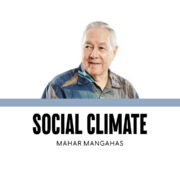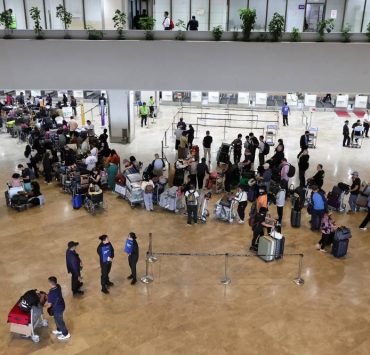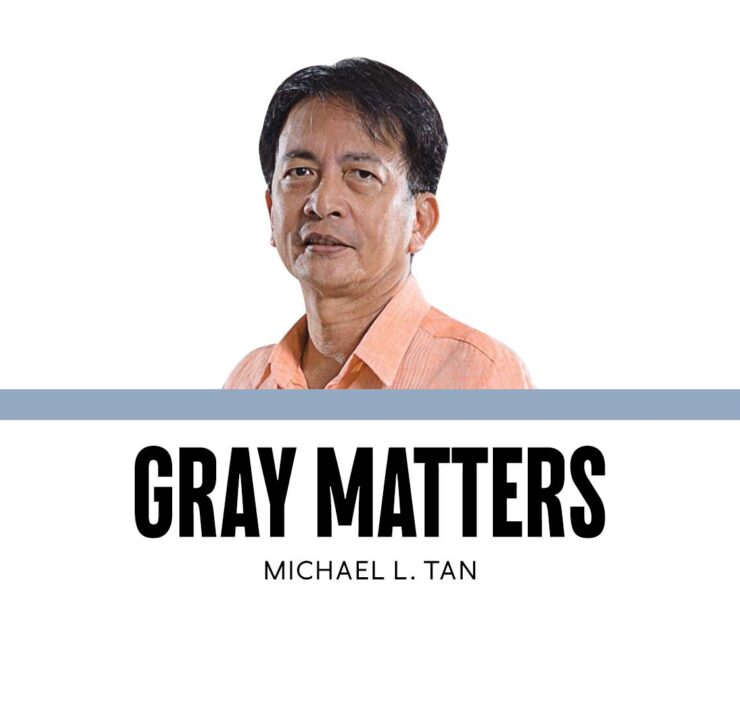Fire and rain

Back in April, senior citizens raved about the James Taylor concert in Manila.
I can sense some of my fellow senior citizen readers now recognizing the title of my column but let me jog your brain a bit more with the additional lyrics:
“Oh, I’ve seen fire and I’ve seen rain. I’ve seen sunny days that I thought would never end …”
Many people think “Fire and Rain” was a love song, a yearning for someone named Suzanne, presumed to be love lost, with a futile hoping love returning. But the song was actually more painful and sorrowful, of James Taylor losing a friend who committed suicide, of struggles with heroin addiction, including Taylor’s own.
As James Taylor fans age, we see more and more people posting their interpretations and reinterpretations, use, and re-use of the song.
I first heard the song while living in the United States in 1970, transitioning from a teenager into a young adult, and understanding its painful context. A half-century later, living in the Philippines, fire and rain speak to me more of our trials with our weather.
We whined through the long hot summer, unprecedented in human history. Mercifully, the rains arrived, which we welcomed with relief. We eagerly said goodbye to a long, hot summer defined mainly by heat.
We declared victory when the past secretary of education—I have difficulties recalling names these days—declared a change again of the school calendar for public primary and secondary schools to avoid the heat of the summer.
But I‘ve continued feeling uneasy and anxious, especially feeling, now, the continuing heat even as the rains fall. The first rains were welcome, including the familiar smell of petrichor, of rain mixed with the parched earth. Even the thunder and lightning were welcome, a backdrop to nature’s life rituals.
But after those initial rains, fire and rain now remind me of what is to come. The temperatures have dropped but we forget that the dry heat of our “summer” is actually less oppressive than what’s ahead with fire and rain.
The rains will come too often, with winds, thunder, and lightning, more like an interstellar war. One of my dogs has always had a morbid fear of fireworks and thunder, scurrying to my side when the skies unleash its fury. Now 15 years old, a senior dog, he’s almost totally deaf but he still runs to me when there are thunderstorms. I know he feels the thunder, perhaps the fire in the rain.
We make light of the typhoons as we run through the alphabet (we’ve reached the letter C), retelling to our children folktales of fire and rain signifying a wedding of the tikbalang, half human, half horse.
But we know, too, and warn, about alimuon, a malevolent version of petrichor, also known as singaw ng lupa, vapors of the earth released when rains fall on the warm earth. Our epidemiologists should go beyond plotting out disease prevalence by month and analyze correlations of diseases with heat, humidity, and weather.
May I propose, too, a revival of an older meaning of alimuon as gossip, and spare all our women named “Maritess” the teasing that comes with their name being appropriated to refer to tsismis. Alimuon is gender-neutral even as it evokes the pathogenicity of gossip.
Fire and rain remind me of Nick Joaquin’s “Tropical Gothic,” where he writes especially about August as a malevolent month, politically, for example, the Plaza Miranda bombing in August 1971.
Among Chinese-Filipinos, fire and rain are associated with the seventh lunar month when hungry ghosts roam the earth, causing havoc and disasters.
I was in high school in 1968, when the Casiguran earthquake led to the collapse of the Ruby Tower in Manila’s Chinatown. “Ghost month,” older Chinese muttered. Bands of relatives who lost loved ones in Ruby Tower continued, for years, to demonstrate at the Chinese Cemetery in Manila to protest greed in Ruby Tower’s substandard construction.
It’s not ghosts we should worry about but the evil in the hearts of men and women.
I worry, too, about how we deceive ourselves with fire and rain. The shift to the old academic calendar will not solve the problem of lost classes. It is not a matter of choosing between the dry and the rainy season, but of being better prepared to handle the extremes of weather, starting with recognizing how heat waves are inevitable with all the concrete buildings turning into heat islands.
And when fire and rain converge, those same heat islands block natural drainage, causing flooding even with the mildest rains.
“Fire and Rain” may well evolve into a dirge, mourning our lack of appreciation of better times. Dare we wish we will see them again?
mtan@inquirer.com.ph

















